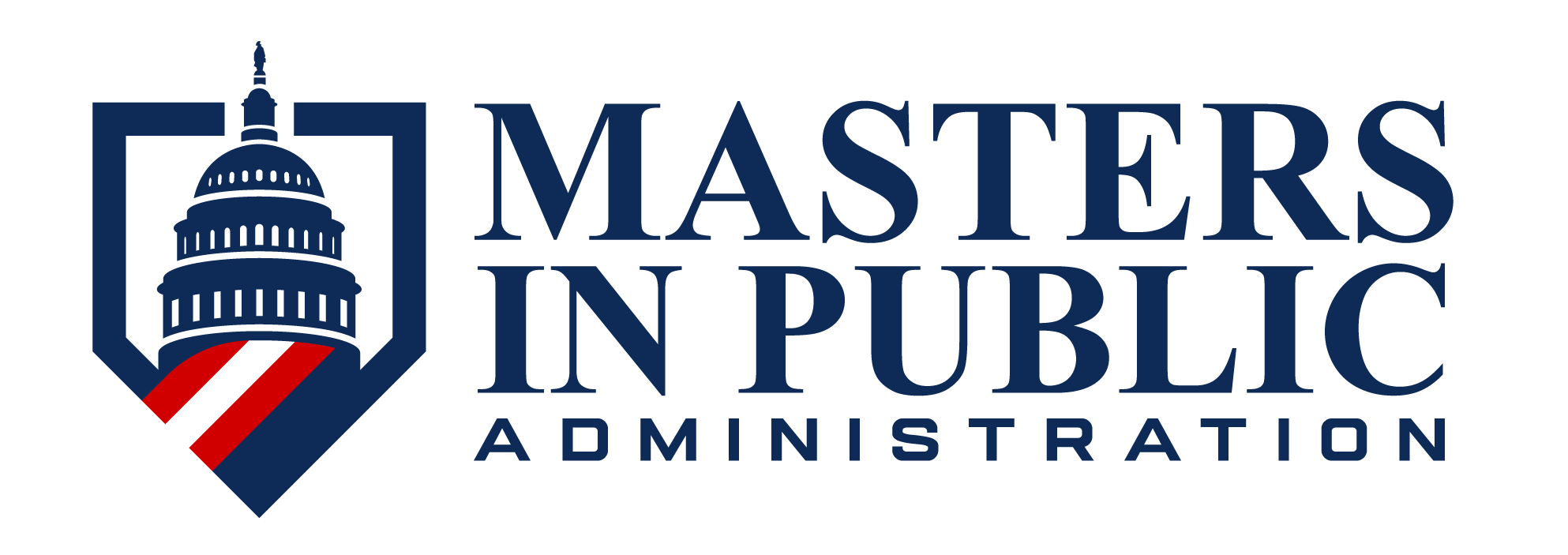Introduction
As an MPP student in Michigan, you’ll likely find a vibrant academic community and opportunities for collaboration. Universities prioritize interdisciplinary learning, encouraging students to work alongside peers in fields like environmental science, business, or urban planning to tackle multifaceted issues. This collaborative approach is particularly important in Michigan, where addressing urban renewal, infrastructure challenges, and environmental sustainability requires input from diverse disciplines.
Key State Takeaways:
- Total MPP Programs Statewide: 3
- NASPAA-Accredited Programs: 0
- Annual Resident Tuition Average: $14,200 (PYR)
- Annual Non-Resident Tuition Average: $21,000 (PYR)
- Program Formats Offered: On-campus, online
- Average Starting Salary: $70,000
MPP Programs in Michigan
While Michigan does not currently have NASPAA-accredited Master of Public Policy (MPP) programs, its universities maintain high academic standards in their policy and public administration departments. Many of these departments are NASPAA-accredited for related degrees, such as Master of Public Administration (MPA) programs.
The absence of direct NASPAA accreditation for MPP programs in Michigan does not mean these programs lack value or quality. In fact, many universities in the state design their MPP programs to align with NASPAA standards, offering comprehensive coursework in policy analysis, leadership, ethics, and program evaluation. This ensures that students still receive the rigorous, relevant training necessary to succeed in public policy careers.
University of Michigan – Ann Arbor
- Ann Arbor, MI
- 48 Credit Hours
- Campus
Program:
Masters of Public Policy (MPP)
Program Overview:
The MPP at the University of Michigan’s Ford School is a rigorous two-year professional degree designed for individuals who want to lead in the public, private, and non-profit sectors. The curriculum emphasizes analytic tools (microeconomics, statistics, program evaluation), political and ethical analysis, and communication skills.
Beyond the core, the program supports customization through electives and allows up to 25% of credits to be taken in other U-M schools (e.g., Law, Business, Public Health, Information), enabling students to tailor study around domains like education, environment, tech policy, and international development.
Unique Components:
- Comprehensive analytic core with applied internship. The curriculum includes a structured core in microeconomics, statistics, quantitative program evaluation, governance and ethics, plus a required summer internship between the first and second years that brings real-world policy practice into the experience.
- Customization and dual-degree flexibility. Students may choose from a broad variety of electives and pursue dual-/joint-degrees (e.g., JD/MPP) and cross-school combinations, enabling specialization in areas like tech policy, global development, or public health.
- Strong cohort size and diverse student body. The MPP cohort is approximately 100 students per year with average prior work experience around 3.5 years; the program values quantitative readiness demonstrated via GRE or a statement of quantitative preparation.
Key Data Highlights:
- Format: On-campus
- Accreditation: NCACSHLC
- Credit Hours: 48
- GRE: Required
- Resident Tuition: $1,112 (PCH)
- Non-Resident Tuition: $1,889 (PCH)
- Acceptance Rate: N/A
- Enrollment: 100 students
Other Considerations:
- Hands-on policy simulation and consulting experiences. The program features applied policy exercises, client-based consulting projects, and an international policy development component, giving students opportunities to practice policy work in realistic and global settings.
University of Michigan – Dearborn
- Dearborn, MI
- 36 Credit Hours
- Campus + Hybrid
Program:
Masters of Public Policy (MPP)
Program Overview:
The MPAP at University of Michigan–Dearborn is designed for current and aspiring public and nonprofit sector professionals who seek analytical, management and policy-oriented training. The curriculum integrates public policy, administration, and leadership to prepare graduates to lead organizations, design and evaluate programs, manage public resources, and address complex policy challenges in local, state and regional settings.
The program emphasizes flexibility, offering full- and part-time scheduling and accelerated 4+1 pathways for UM-Dearborn undergraduates, making it accessible to working professionals and allowing integration of graduate study with professional responsibilities.
Unique Components:
- Integrated policy and administration focus. The MPAP combines core courses in public administration, policy development and evaluation, strategic management, and nonprofit/public sector leadership to give students a dual lens on management and policy.
- Accelerated 4+1 pathway for undergraduates. Undergraduates at UM-Dearborn can begin graduate coursework and complete both their bachelor’s and the MPAP in an accelerated 5-year format; up to 16 graduate credits may be double-counted.
- Flexible format for working professionals. Courses are structured to accommodate mid-career and working students; the program is positioned for professionals in government, nonprofit or public service roles.
Key Data Highlights:
- Format: On-campus, hybrid
- Accreditation: NCACSHLC
- Credit Hours: 36
- GRE: Not required
- Resident Tuition: $13,640 (PYR)
- Non-Resident Tuition: $24,896 (PYR)
- Acceptance Rate: NA
- Enrollment: 15-20 students
Other Considerations:
- Clear pathway for undergraduates and diverse student body. The program serves a diverse cohort and offers pathways from undergraduate majors into the MPAP, reflecting a commitment to inclusive public service education.
Michigan State University
- East Lansing, MI
- 30 Credit Hours
- Online + Campus + Hybrid
Program:
Masters of Public Policy (MPP)
Program Overview:
The MPP at Michigan State University (MSU) is offered jointly by the Departments of Political Science and Economics in the College of Social Science and is designed to equip students with analytical, quantitative, and policy-design skills needed to influence public, nonprofit, and private sector policy decisions.
The program emphasizes rigorous training in quantitative methods (two sequential courses), microeconomic theory, policy evaluation, public finance, and policy development and administration. It caters to those pursuing careers in policy analysis, program management, advocacy, and leadership within a changing policy landscape.
Unique Components:
- Administered jointly by economics and political science. The program benefits from faculty and curriculum input from both departments, reflecting a multidisciplinary approach to policy and administration.
- “Linked-program” 5-year BA/MPP option. MSU undergraduates (especially in political science or economics) may apply up to 12 approved credits from their undergraduate program towards the MPP, enabling completion of both degrees in five years.
Key Data Highlights:
- Format: Online, on-campus, hybrid
- Accreditation: NCACSHLC
- Credit Hours: 30
- GRE: Not required
- Resident Tuition: $817 (PCH)
- Non-Resident Tuition: $1,606 (PCH)
- Acceptance Rate: 34%
- Enrollment: 43 students
Other Considerations:
- High placement rate within six months of graduation. According to program FAQs, ~94% of graduates are employed in policy-related roles within six months of finishing.
Career Outlook
With a policy environment shaped by the automotive industry, environmental concerns, urban revitalization efforts, and a diverse population, Michigan provides a variety of professional pathways for those passionate about shaping public policy. MPP graduates in Michigan can find impactful roles in state government, nonprofit advocacy, urban planning, education, and environmental protection. Below are some standout career options that highlight how MPP graduates can apply their skills to make a meaningful difference in the state:
- Policy Analyst at the Michigan House of Representatives
Job Description: Policy analysts at the Michigan House of Representatives are responsible for researching proposed legislation, analyzing policy issues, and providing lawmakers with detailed reports and recommendations. They play a key role in helping legislators understand the potential impacts of new laws, reviewing the effectiveness of existing policies, and tracking the legislative process. Graduates with an MPP can assist in shaping state policies in areas such as healthcare, education, economic development, and environmental regulation. - Program Manager at the Michigan Department of Health and Human Services (MDHHS)
Job Description: A Program Manager at MDHHS oversees programs related to public health, welfare services, and community outreach. They work on developing and implementing policies to improve health outcomes, reduce poverty, and enhance social services. MPP graduates in this role may be responsible for evaluating program effectiveness, ensuring compliance with regulations, and making recommendations for improvements to better serve Michigan residents. - Environmental Policy Analyst at the Michigan Department of Environment, Great Lakes, and Energy (EGLE)
Job Description: This role involves analyzing policies related to environmental protection, natural resource management, and sustainability in Michigan. Environmental policy analysts work on creating and implementing policies aimed at preserving the state’s natural resources, addressing climate change, and regulating industrial pollution. MPP graduates can contribute to Michigan’s environmental future by advising on regulatory changes, conducting environmental assessments, and advocating for legislation on clean energy, water management, and conservation. - Economic Development Officer at the Michigan Economic Development Corporation (MEDC)
Job Description: An Economic Development Officer with the MEDC helps drive Michigan’s economic growth by creating policies and programs that support business development, job creation, and regional prosperity. They evaluate local economies, identify opportunities for investment, and design policies to encourage innovation and support small businesses. MPP graduates in this position may work on creating incentives for businesses to relocate to Michigan, revitalizing urban areas, or promoting workforce development in underserved regions. - Public Policy Advocate at the Michigan League for Public Policy
Job Description: Public policy advocates in nonprofit organizations like the Michigan League for Public Policy focus on advancing policies that address poverty, social justice, education, and healthcare. They research policy issues, engage with policymakers, and develop advocacy strategies to influence public opinion and legislative action. - Legislative Liaison for the City of Detroit
Job Description: A legislative liaison serves as the link between local government (such as the Detroit City Council) and state policymakers. They communicate the city’s needs and priorities to the Michigan state legislature and help coordinate efforts on legislation that affects urban development, crime prevention, housing policies, and public safety. MPP graduates can play a vital role in advocating for Detroit’s interests at the state level, ensuring that the city’s policies align with state goals and that state funds are allocated to Detroit’s development needs.
Frequently Asked Questions (FAQ)
Q: What is the difference between an MPP and an MPA?
A: While both degrees prepare students for leadership roles in the public and nonprofit sectors, their focus differs. An MPA (Master of Public Administration) emphasizes management, budgeting, and organizational leadership, making it ideal for those pursuing administrative or executive positions in government and nonprofits. An MPP (Master of Public Policy) focuses on research, data analysis, and the evaluation of policy outcomes—perfect for students interested in policy design, analysis, and advising decision-makers.
Q: What kinds of skills will I gain from an MPP program in Michigan?
A: MPP students develop strong quantitative, analytical, and communication skills. Coursework typically includes economics, statistics, policy evaluation, and political institutions. Students also learn how to translate complex data into actionable insights for policymakers, organizations, and the public.
Q: What career paths are common for MPP graduates in Michigan?
A: MPP graduates pursue diverse roles in state and local government, nonprofits, research organizations, and private consulting firms. Common positions include Policy Analyst, Program Evaluator, Economic Development Specialist, and Public Affairs Consultant. Many graduates work for agencies such as the Michigan Department of Health and Human Services, the Michigan Economic Development Corporation, or the Detroit Regional Partnership.
Q: Are MPP programs in Michigan offered online or in flexible formats?
A: The University of Michigan’s MPP is offered in a traditional, full-time, on-campus format designed for immersive study and networking. However, other universities in the state offer public policy and administration-related programs in hybrid or online formats, providing flexibility for working professionals.
Q: What is it like living and studying in Michigan as a graduate student?
A: Michigan offers a high quality of life with a relatively low cost of living compared to many other states. Students in Ann Arbor, Lansing, and Detroit enjoy access to thriving cultural scenes, research institutions, and outdoor recreation opportunities—from the Great Lakes and hiking trails to local breweries and music festivals. Winters can be cold and snowy, but Michigan’s four-season environment is part of its charm.
Q: How do MPP students in Michigan gain hands-on experience?
A: Experiential learning is a key component of Michigan’s MPP programs. Students engage in policy research projects, summer internships, and consulting practices with government agencies, nonprofits, or think tanks. At the University of Michigan, the Ford School’s Policy Research Seminar and Applied Policy Projects give students the opportunity to work on real policy issues for clients across the state and nation.



